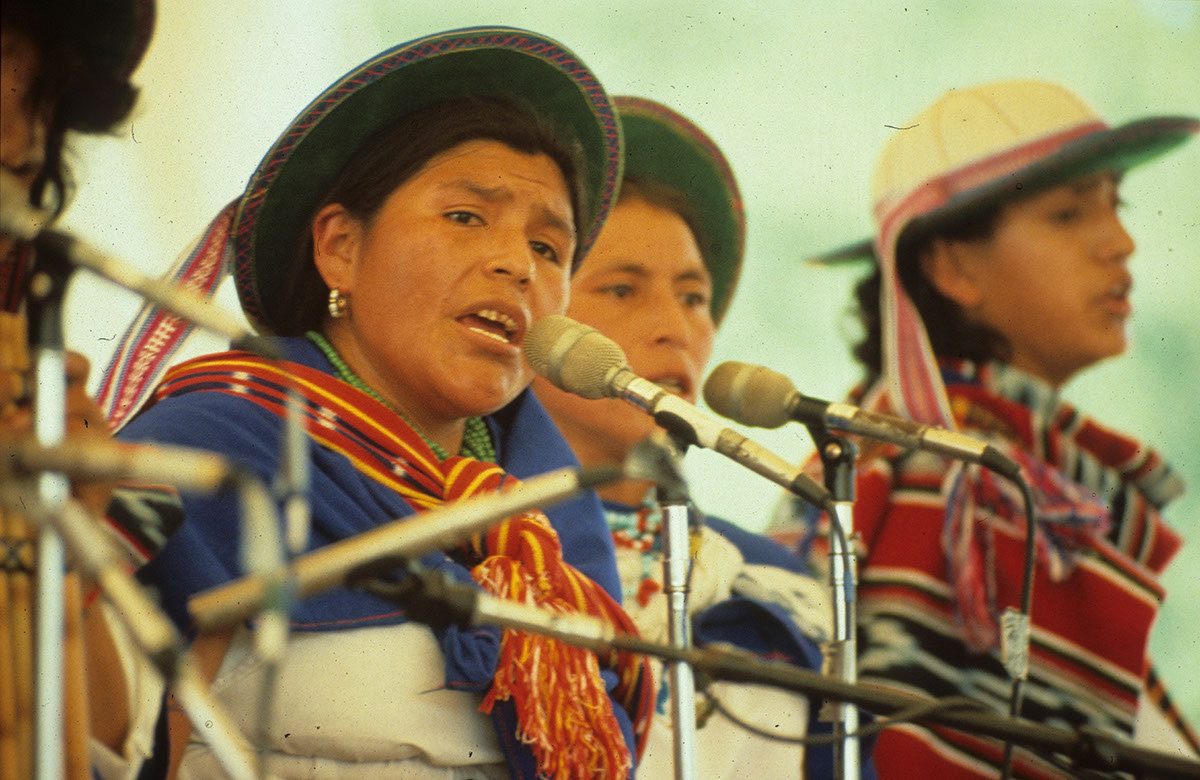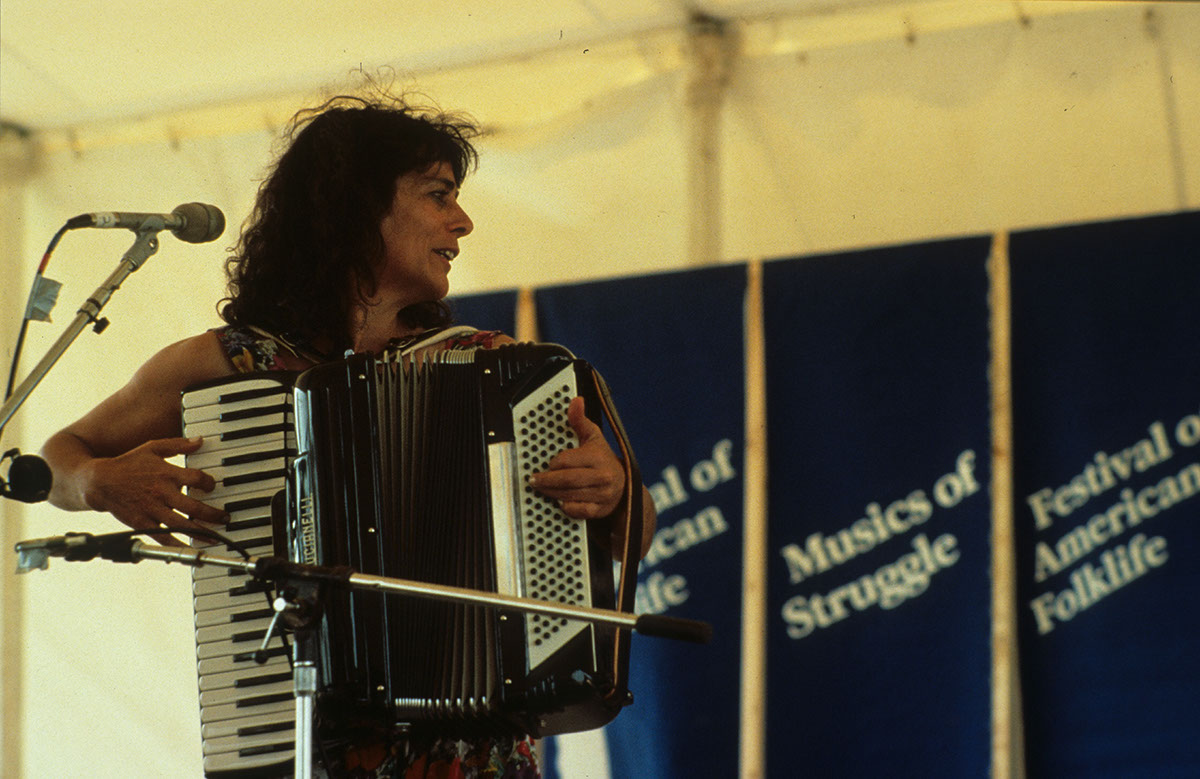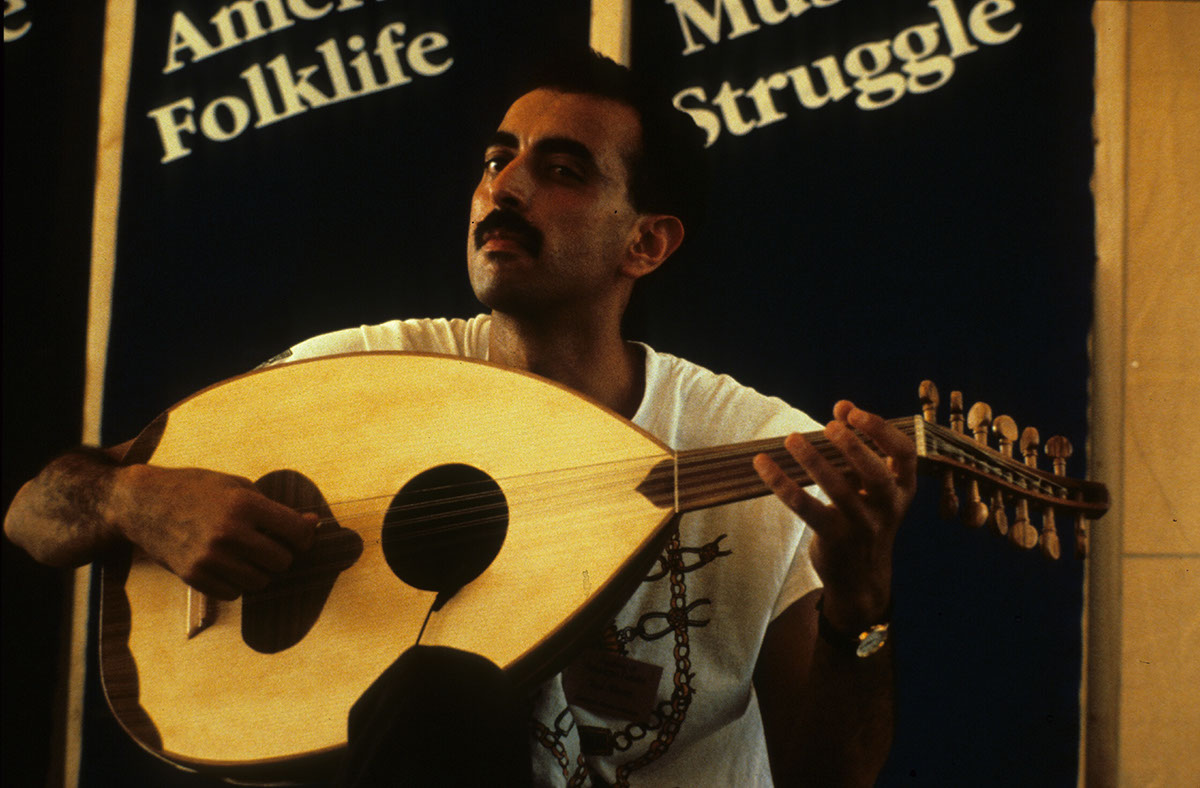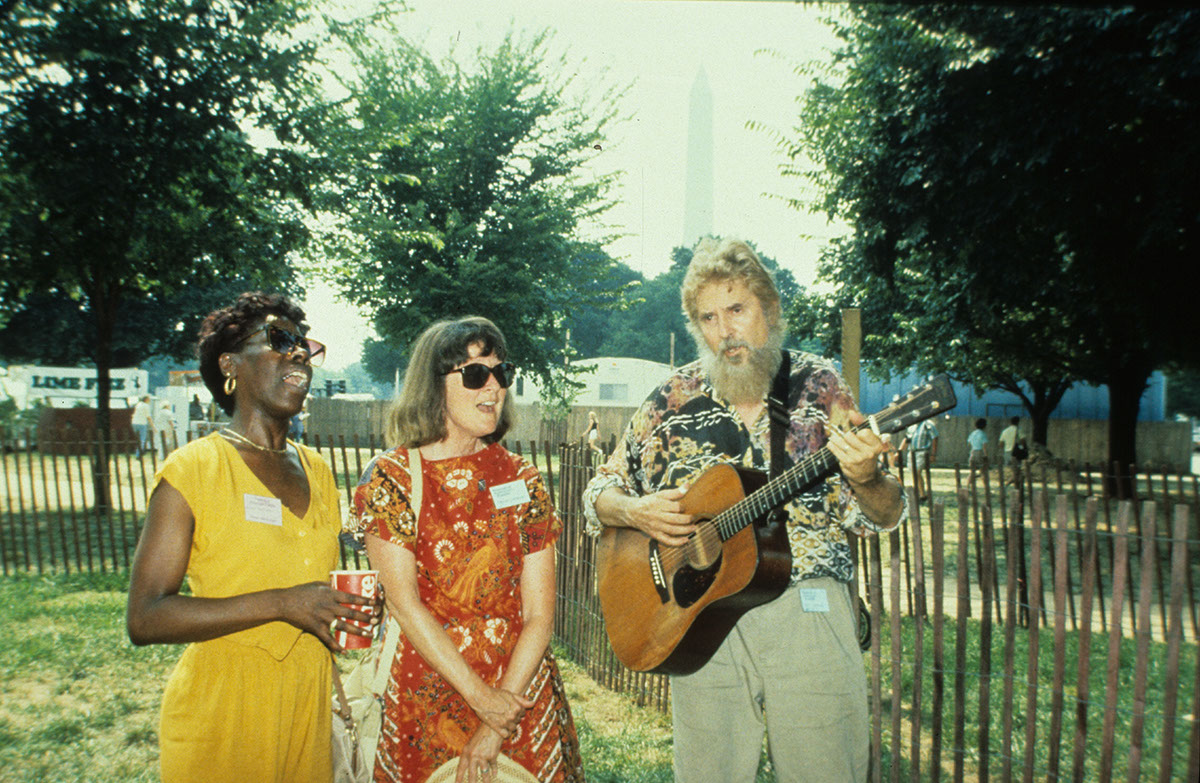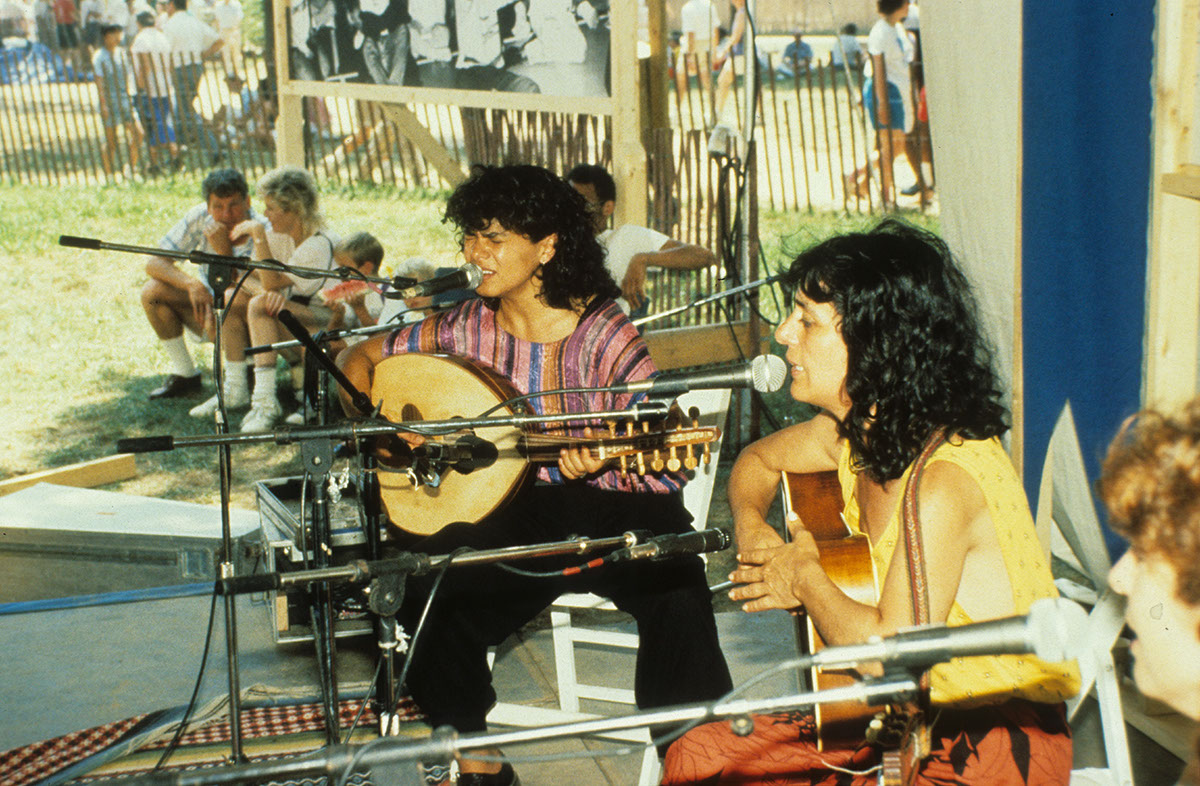Musical performances can be a part of social movements in a number of different ways. From marked silence through the revival of old musical forms to the composition of new genres, musical performances have both expressed and created feelings of community, have defined central concerns and aspirations, knit small communities together and projected messages to large international audiences. Music can be an effective resource for social movements because of the variety of ways it can be used - with subtlety or bluntness - and its ability to be heard in spite of censorship. Forged, transformed, and even abandoned in the crucible of struggle, music is part of the complex web of sounds and signs with which we experience and make history.
In the Musics of Struggle program, Fesival visitors could learn how different communities, in the United States and abroad, used traditional music, song, chant, and movement to make their voices heard. Recent years had seen profound changes in the social order resulting from mobilizations of popular support. Traditional music had taken on a dramatic, culturally dynamic role in some of these mobilizations. Old songs and tunes newly recontextualized or revalorized provided a link between the continuity of the past and the challenge of the present. Sometimes forgotton was how powerful could be music that articulates a sense of moral purpose and moves a community, a people, or a nation to transform itself. The 1990 program demonstrated just that power to transform, with performances ranging from the songs of the Freedom Singers to the chants, in sign language, of students in Gallaudet's 1988 "Deaf President Now" Movement.
Jacquelin Peters was Curator and Anthony Seeger was Program Consultant; Arlene L. Reiniger served as Program Assistant and Lori Taylor as Song Collection Coordinator.
Musics of Struggle was made possible, in part, by the Music Performance Trust Funds, the Inter-American Foundation, and the Arab American Cultural Foundation.


